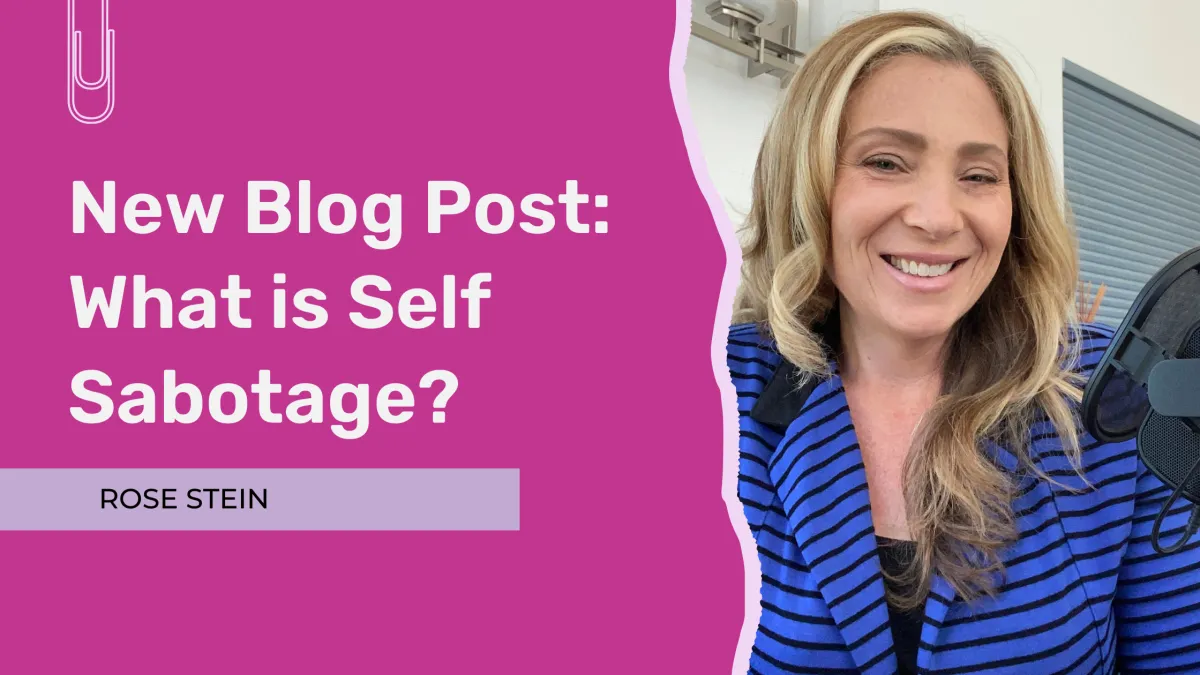
All positive change starts with a thought...
Blog
Insights & Inspiration... for a Healthier and Better You
Welcome to the Rose Stein's Blog!
Here, you'll find inspiration, practical strategies, and expert insights to help you create lasting positive change in your life. Whether you're looking to improve your mindset, enhance your well-being, or overcome personal challenges, this space is dedicated to guiding and empowering you on your journey.
Take your time, explore, and remember—transformation starts with a single step. Let's grow together!

Body & Mind Balance

Meditation Practice

Healthy Daily Life

Stress Management

What is Self-Sabotage

Google: Define Self-Sabotage.
Self-sabotage is when someone intentionally or unintentionally hinders their own success or well-being. It can involve actions or inactions that create problems in daily life and interfere with long-term goals. Self-sabotage can affect a person's mental health, relationships, and career.
Some examples of self-sabotaging behaviors include:
Procrastinating
Self-medicating with drugs or alcohol
Comfort eating
Self-injury
Forgetting deadlines
Failing to prepare for presentations
Being consistently late to work
Shutting down or stopping communication during conflicts
Google: How do I stop self-sabotaging?
Here are some ways to stop self-sabotage:
Practice mindfulness: Be present in the moment and pay attention to your thoughts and feelings. This can help you identify your triggers and patterns.
Practice self-compassion: Treat yourself with kindness, understanding, and acceptance. Recognize that everyone makes mistakes and that it's okay to struggle.
Set achievable goals: Set meaningful goals and pair them with an action plan.
Challenge your negative self-talk: Use positive affirmations to change your inner critic.
Find an accountability buddy: Choose someone who can offer support when needed.
Monitor your behaviors: Pay attention to your behaviors, feelings, thoughts, and beliefs about yourself.
Learn to tolerate discomfort: Learn to tolerate discomfort little by little.
Work with a therapist: A therapist can help you realize the level of life you deserve.

Real Stories, Real Results:






Meditation and Hypnosis Guide


